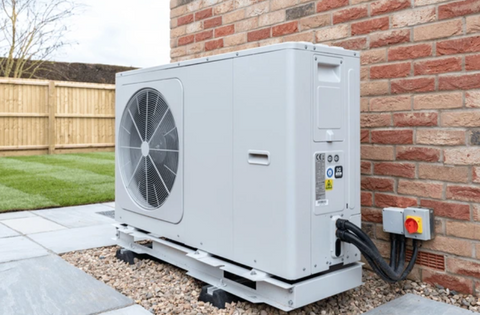In the quest for energy-efficient heating and cooling solutions, heat pumps have emerged as a versatile option. But can they effectively cool your home during the hot summer months? Let's delve into heat pumps' capabilities and explore their cooling efficiency.

Understanding Heat Pumps
Heat pumps operate by transferring heat from one area to another using a refrigerant. During winter, they extract heat from the outdoor air (or ground) and transfer it indoors to warm your home. Conversely, in summer, the process reverses, expelling heat from indoors to outdoors, thereby cooling your home.
Cooling Functionality of Heat Pumps
Heat Pump Operation in Cooling Mode
When switched to cooling mode, a heat pump extracts heat from inside your home and releases it outside. This is achieved by reversing the refrigerant flow, making the indoor coil function as the evaporator and the outdoor coil as the condenser.
Efficiency in Cooling
Modern heat pumps are designed to efficiently cool homes, often surpassing traditional air conditioning systems in energy efficiency. By leveraging the principles of heat transfer, they can provide effective cooling while consuming less energy, leading to lower utility bills and reduced environmental impact.
Factors Influencing Cooling Efficiency
Proper Sizing
Ensuring that your heat pump is appropriately sized for your home is crucial for optimal cooling performance. An undersized unit may need help to maintain desired temperatures, while an oversized one could cycle on and off frequently, leading to energy wastage.
Insulation and Sealing
The effectiveness of your home's insulation and sealing directly impacts the cooling efficiency of a heat pump. Well-insulated and tightly sealed spaces retain cool air better, allowing the heat pump to operate more efficiently and maintain consistent indoor temperatures.
Climate Considerations
While heat pumps can effectively cool homes in various climates, their performance may vary depending on ambient temperatures. In regions with extremely high temperatures, supplemental cooling methods or specialized heat pump models may be necessary for optimal comfort.
Advantages of Using a Heat Pump for Cooling
Year-Round Comfort
One of the primary benefits of heat pumps is their ability to provide both heating and cooling throughout the year, offering a comprehensive HVAC solution for all seasons.
Energy Efficiency
Heat pumps are renowned for their energy efficiency, offering significant savings on heating and cooling costs compared to traditional HVAC systems.
Environmental Friendliness
By utilizing renewable heat sources and minimizing energy consumption, heat pumps contribute to reducing carbon emissions and mitigating environmental impact.
Conclusion
Heat pumps are indeed capable of effectively cooling your home, offering energy-efficient and environmentally friendly cooling solutions. By understanding their operation, considering key factors influencing efficiency, and leveraging their numerous advantages, you can enjoy year-round comfort while reducing your carbon footprint. Embracing heat pump technology is not just a step towards a cooler home but also towards a more sustainable future.

